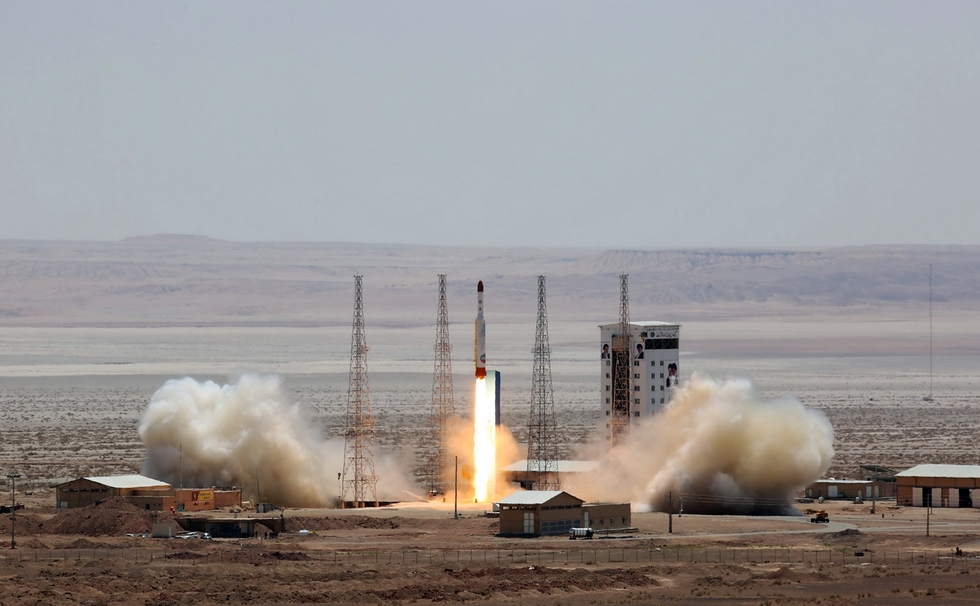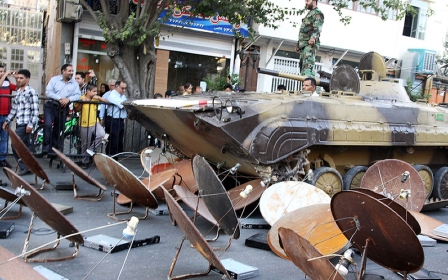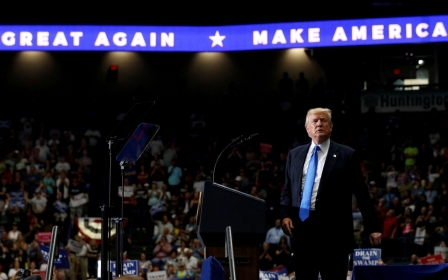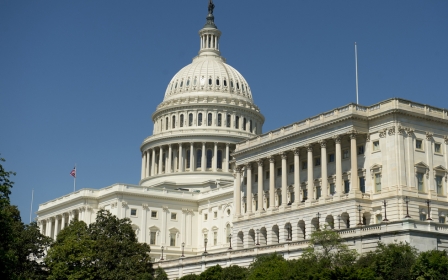Iran launches rocket capable of carrying satellite into space

Iran on Thursday successfully tested a satellite-launch rocket, days after warning Washington of a response to new US sanctions over the Islamic Republic's ballistic missile programme, state television said.
It said the launch vehicle, named Simorgh after a bird in Iranian mythology, was capable of propelling a satellite weighing 250kg to an altitude of 500km above Earth.
The launch marked the official inauguration of Iran's Imam Khomeini space centre, named after the late founder of the Islamic Republic, built for sending satellites into space, the broadcaster said.
State television broadcast footage of the launch from the space centre in eastern Iran's Semnan province, the site of past launches.
The centre, whose exact location was not disclosed, is on "an immense site used for the preparation, launch, control and guidance of all satellite launch vehicles," said the defence ministry, which is in charge of Iran's space programme.
"We can do it," read a slogan on the rocket.
Western states suspect Iran of developing technology capable of launching long-range ballistic missiles with conventional or nuclear payloads, a charge denied by Tehran which insists its space programme has purely peaceful aims.
Iran's four other launches of domestically produced satellites since 2009 have all sparked condemnation in the West.
Hours after Iran's latest announcement, the United States called the launch an act that undermined regional stability and said it appeared to violate UN resolutions.
"We consider that to be continued ballistic missile development," US State Department spokeswoman Heather Nauert said. "We consider this to be provocative action."
Nauert added that if confirmed, the test could be a "violation of UN Security Council resolutions".
US versus Iran
The rocket launch comes days after the US House of Representatives passed a bill that sanctions Iran's ballistic missile programme.
The bill adds sanctions to anyone involved in Iran’s ballistic missile programme, including those who “manufacture, acquire, possess, develop, transport, transfer, or use such capabilities”.
It also places sanctions on anyone involved or affiliated with the Iranian Revolutionary Guard, which the US alleges “is the primary arm of the government of Iran for executing its policy of supporting terrorist and insurgent groups”.
In addition, the bill gives the US secretary of state the power to compile for sanctions a list of Iranian individuals who have committed human rights abuses.
Tensions have mounted between Washington and Tehran, which severed diplomatic ties after Iran's 1979 Islamic revolution, since US President Donald Trump took office six months ago.
President Hassan Rouhani said on Wednesday that Iran would respond in kind to any breach by the United States of a 2015 nuclear deal, after the House of Representatives passed the new sanctions bill.
"If the enemy steps over part of the agreement, we will do the same, and if they step over the entire deal, we will do the same too," Rouhani said at a cabinet meeting.
If the enemy steps over part of the agreement, we will do the same, and if they step over the entire deal, we will do the same too
- Iranian President Hassan Rouhani
The Iranian parliament's national security and foreign affairs committee said it would hold an extraordinary session on Saturday to discuss its formal response.
The parliament voted earlier this month to fast-track a bill introduced in June that would increase funds for Iran's missile programme and Revolutionary Guards.
"We must always develop our defence capability and we will strengthen our defensive weapons regardless of the opinion of others," Rouhani said.
As part of its space programme, Iran has also sent two capsules into space, the first in February 2010 carrying a rat, tortoises and insects, and the other in January 2013 when a monkey was sent into space and returned to earth safely, according to official media.
Middle East Eye propose une couverture et une analyse indépendantes et incomparables du Moyen-Orient, de l’Afrique du Nord et d’autres régions du monde. Pour en savoir plus sur la reprise de ce contenu et les frais qui s’appliquent, veuillez remplir ce formulaire [en anglais]. Pour en savoir plus sur MEE, cliquez ici [en anglais].




